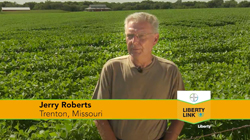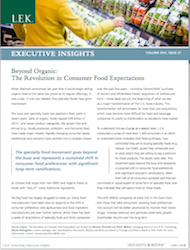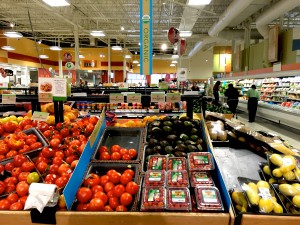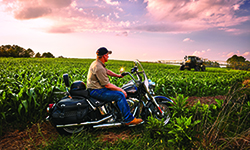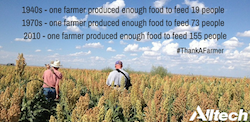 The Organic Trade Association was well represented during it’s panel in Milan at the World Expo. The four women leading the “Women Leading the Organic Way” session represented more than 70 years of food activism which tied in nicely with the theme of the USA Pavilion; “American Food 2.0: United to Feed the World.” The American pavilion showcased the U.S. not only as an innovator in the food sector, but also in many aspects of culture, science and business.
The Organic Trade Association was well represented during it’s panel in Milan at the World Expo. The four women leading the “Women Leading the Organic Way” session represented more than 70 years of food activism which tied in nicely with the theme of the USA Pavilion; “American Food 2.0: United to Feed the World.” The American pavilion showcased the U.S. not only as an innovator in the food sector, but also in many aspects of culture, science and business.
Panelists were Anne Alonzo, Administrator of the Agricultural Marketing Service at the U.S. Department of Agriculture (USDA); Laura Batcha, Executive Director and CEO of OTA; Ariane Lotti, farmer and agricultural entrepreneur; and Liz Neumark, Founder and CEO of Great Performances & Katchkie Farm.
For an absorbing two hours, the panelists talked about their unique paths that led them to the rooftop terrace of the USA Pavilion and what they envision for the future of food and the future of the planet. A bigger role for organic in the effort to feed the world in a sustainable way, growing opportunities for entrepreneurs—and women in particular—in the world of organic, and consumers who know where their food comes from and how it was produced were seen on the horizon.
“The next generation is making their voices heard, and they’re demanding a sustainable path to the table.,” said Neumark.
This year’s expo, whose theme is “Feeding the Planet, Energy for Life,” explores the huge challenge of finding a balance between meeting the nutritional needs of the global population and respecting the planet. The six-month show, which comes to a close on Oct. 31, has featured food and agricultural technology and innovations from more than 140 participating countries, and has attracted over 20 million visitors from around the world.

